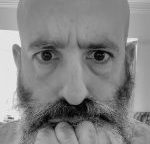This year the Dementia Action Alliance, released a new set of ‘we’ statements relating to dementia.
This was a significant change in the way a disease – dementia is considered. The statements were generated through discussion and consultation with those living with dementia and those supporting them.
Here they are:
We have the right to be recognised as who we are, to make choices about our lives including taking risks, and to contribute to society. Our diagnosis should not define us, nor should we be ashamed of it.
We have the right to continue with day-to-day and family life, without discrimination or unfair cost, to be accepted and included in our communities and not live in isolation or loneliness.
We have the right to an early and accurate diagnosis, and to receive evidence based, appropriate, compassionate and properly funded care and treatment, from trained people who understand us and how dementia affects us. This must meet our needs, wherever we live.
We have the right to be respected, and recognised as partners in care, provided with education, support, services, and training which enables us to plan and make decisions about the future.
We have the right to know about and decide if we want to be involved in research that looks at cause, cure and care for dementia and be supported to take part.
Disease, although it primarily affects the individual does not stop with them; it occupies a place central to friendship, family and society.
Dementia is a disease of neurones, one brain cell at a time malfunctions, spreading eventually to the whole person.
None of us can live in isolation (beyond the Aristotle/Nietzschean idyll) – I link to you who connects with me; I become us and we.
Perhaps this is an approach that should be taken to all disease – moving the expectation that whether you have eczema, asthma, diabetes or cancer – the monad of me alone, suffering in silence is not what we are about.
We, evolved to live in groups, societies, collaboratively, supportively – if we allow disease to affect just individuals, to peel them off from society, for whom does the bell toll?
My hay fever affects me; it is me who is sniffing and snuffling through the night, yet, it has affects beyond my person, it reverberates throughout the household.
My arthritic knee, or back or neck, causes me pain, yet, the experience ripples through my family and friends, it changes the dynamic.
Grenfell tower is a representation of me and we; me – the mansion owners of Kensington, somewhere in the world, living it up, their empty houses abandoned yet secure with the latest burglar and fire alarms. And, down the road, the people packaged into minimum square-space existence.
Brexit is another example; I am fine, thank you very much; We isn’t something that is part of the equation – you, you foreign, dark-skinned migrant, refugee, asylum-seeker are not part of we, you are peripheral to us.
The irony of the justification for TM not meeting victims of the fire because of concerns over her own safety.
The irony that so long as I have my car, my holidays, pension and day-time TV, things are alright, don’t bother me with the trivialities of Mogadishu or Damascus.
The we statements represent a shift, a movement away from me to us, from them to we;
Don’t peer too deeply inside; it’s not just about the medicine or the tablet, it is the relationship that counts.
This spills-over into patient safety; when I am considered first, and my patient second, when my troubles or preoccupations are allowed to dominate the narrative, when I forget that my place is to care, I risk forgetting the ‘we’ – I risk not seeing the patient, who by extension is me.
Person-centred care – seeing the person as central is as relevant as seeing that the person you are treating is you, could be you or, your mum or dad, brother or sister.
Once this shift, this change in perspective has occurred, nothing can ever be the same.
We not I.
Us not me.
xxxx
I learned yesterday a little about photons.
Photons are the smallest indivisible particles of light that exist without mass, without occupying space or volume.
Beyond this conception are different species of Photons. Entangled Photons are paired particles that are also indivisible. What makes them stand apart from anything else in the universe is that the two can never be entirely detached.
Stretch the entangled photons to different sides of the universe and what affects one will affect the other, no matter the distance or separation.
Like conjoined twins who share feelings or sensations regardless of distance or geography.
This takes us back to the notion that ‘we’ needs to be considered the smallest unit of society. And, this is not just ‘we’ in the sense of, my family, my town or tribe, but, ‘we’ in the sense that what affects one of us affects us all.
We are indivisible.
This is what makes us human.


